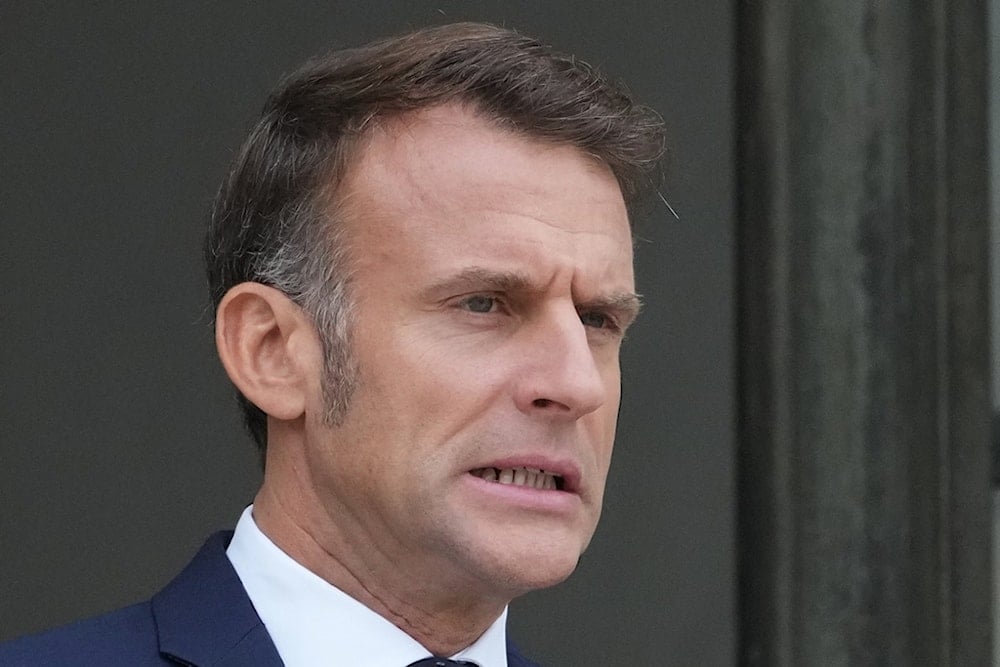52% of French support right-wing coalition amid political crisis: Poll
A new survey shows 52% of French citizens support a right-wing coalition as political instability continues under Emmanuel Macron’s government.
-

French President Emmanuel Macron waits for Jordan's Crown Prince Hussein at the presidential Elysee Palace, Wednesday, Oct. 8, 2025 in Paris. (AP Photo/Michel Euler)
A recent survey conducted by the French Institute of Public Opinion (IFOP) reveals that a majority of French citizens, 52%, support the formation of a right-wing coalition government, as political instability deepens under President Emmanuel Macron.
The poll, commissioned by Valeurs Actuelles, was carried out amid the reappointment of Sebastien Lecornu as France's prime minister. Lecornu had previously resigned on October 6 after just 27 days in office, making him the country’s shortest-serving prime minister in over six decades.
Public support for a right-wing coalition
According to the survey, support for a right-wing coalition government cuts across party lines. The potential coalition would include figures from the Republicans, National Rally, and Reconquête parties.
Among those who back the Republicans, 82% expressed support for such an alliance. Support is even higher among sympathizers of the other two major right-wing parties: 88% of National Rally supporters and 100% of Reconquete sympathizers are in favor.
Notably, 41% of respondents who support President Macron's centrist Renaissance party also expressed a favorable view toward the idea of a broad right-wing coalition, underscoring a shift in public sentiment amid ongoing governance challenges.
The IFOP survey also identified Jordan Bardella, leader of the National Rally, as the most popular choice for prime minister among right-wing voters, receiving 42% support.
Following Bardella, Marine Le Pen, head of the National Rally’s parliamentary group, garnered 36% support, while Bruno Retailleau, leader of the Republicans, received 32%.
The three parties largely align on key policy priorities, including reducing government spending, increasing purchasing power, and tightening migration controls.
Political turmoil following Lecornu's resignation
Lecornu’s resignation triggered a renewed political crisis in France, continuing a pattern of instability since Macron’s 2022 re-election. Lecornu’s predecessor, Francois Bayrou, stepped down in early September after losing a parliamentary confidence vote over his austerity plan. Lecornu was then tasked with forming a new government.
Following Lecornu’s resignation, Macron held consultations with several political parties, excluding Marine Le Pen’s National Rally and Jean-Luc Melenchon’s left-wing France Unbowed, in an effort to reconfigure the government.
On October 10, Macron reappointed Lecornu as prime minister, despite his earlier resignation. The exclusion of both far-right and far-left parties from the consultation process drew criticism and further highlighted the fragmented state of French politics.
The survey was conducted online between October 9 and October 10, 2025, among 1,000 adult French citizens. The margin of error was not disclosed.
Read more: France faces political freefall as Macron's popularity hits record low

 3 Min Read
3 Min Read








